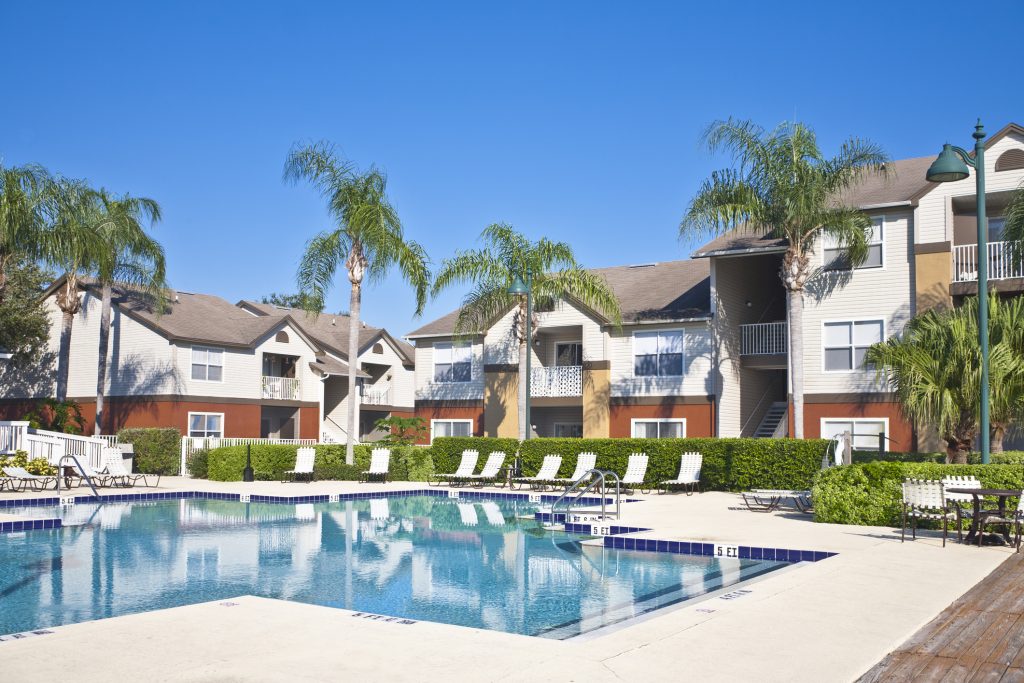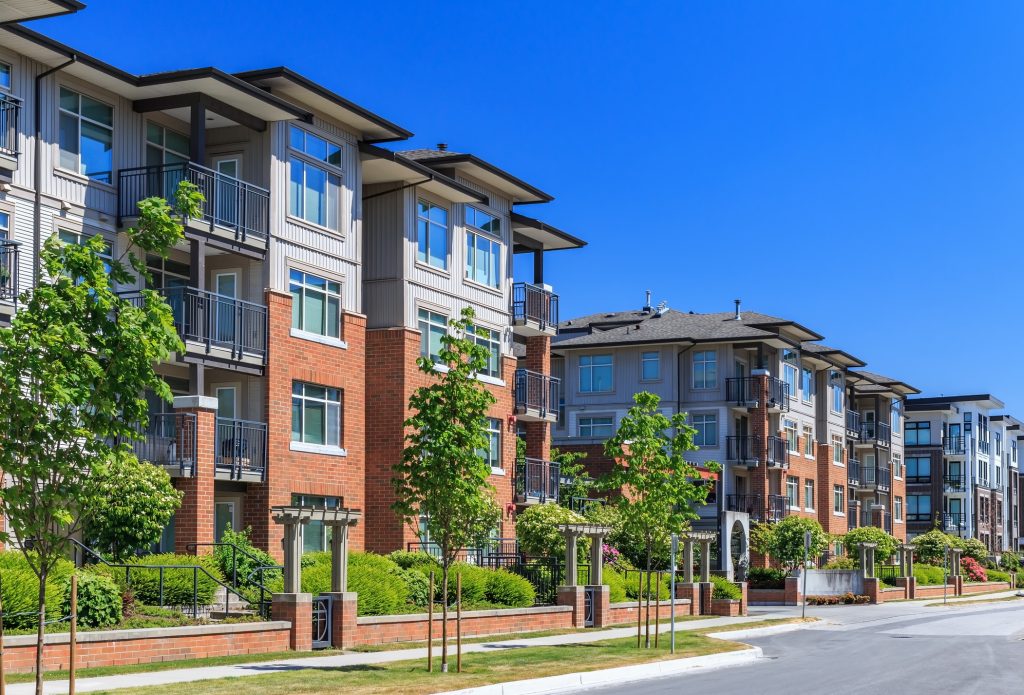Your strata property type plays an important role in how it is managed and maintained.
Did you know that not all strata properties are managed in the same way? There are several types of strata or body corporate properties in Australia, each with unique administration and maintenance needs. The service your strata management provider delivers may vary quite a bit, depending on your property type.
These are the four main types of strata, body corporate or owners corporation properties you’re likely to come across in Australia:


Strata title properties are generally multi-tiered buildings with many individual units or lots and communal spaces. They may include facilities like driveways, gardens, gyms, pools, lifts, and many more.
While these features may increase residents’ quality of life in the strata property, they may also increase the need for large-scale hands-on maintenance to stay immaculate, safe and compliant with legislation.
Strata insurance is mandatory for strata title buildings. It covers the building, all common property areas managed by the owners corporation, and public liability.
Strata properties all have mandatory compliance requirements, which committees must action yearly. Click here for an explanation of these requirements.
When it comes to strata properties, unit or lot entitlement boundaries are determined using the building’s structural aspects, like walls and ceilings.
All strata property owners must pay levies that go towards the property’s maintenance, upkeep and repairs. A nominated portion of these will go to the administrative fund used for regular care and administrative matters. The rest will go toward the capital works fund, sinking fund or maintenance, which can be utilised for repairs, emergencies and upgrades.
All owners also automatically become voting members of the owners corporation. Strata properties are generally managed by a strata committee of two or more lot owners, on behalf of the owners corporation. Most strata committees engage a strata management provider to assist with property management. They can also choose to delegate some of their powers to a strata management provider.
Experienced strata management providers such as Body Corporate Services are able to provide high-quality service, fostering community living and supporting the property’s care and functionality.

Community titles strata properties are generally multi-tiered or multi-dwelling properties that span large areas. They may feature communal facilities, including driveways, gardens, gyms, pools, and lifts.
While these amenities enhance community living, they may also increase the need for large-scale hands-on maintenance to stay immaculate, safe and compliant.
As community-titled properties generally have several buildings spread across much land, boundaries are usually determined by surveying last measurements. Buildings are typically considered one lot or unit and are ordinarily individually owned.
Unlike strata title properties, community title properties are not required to have common insurance for each building. The owners are responsible for ensuring their property is adequately insured.
All community title owners pay levies towards the upkeep and maintenance of the community title property. They also automatically become voting members of the community association, responsible for maintaining all common areas on the property, including common land.
The community association may elect a community scheme committee responsible for managing the property. And a strata management provider is usually appointed, too, to assist with strata management.
You’ll find that some strata management providers — including Body Corporate Services, are well-known for managing community title strata properties and can offer onsite building management, should your property require it. Such providers may support your committee with the specialised service your strata property needs while utilising their technical knowledge and expertise and building strong relationships within your community.

Company title is an older form of land title that predates community title. When it comes to company-titled properties, a company owns the land, and the buildings on it, and individual owners are shareholders entitled to exclusive occupation of a designated space.
Shareholders do not technically own land or airspace as owners do in strata schemes. Instead, they are company shareholders that own all land, common areas and airspace.
Company title management requires an in-depth understanding of corporation law and business management due to its governing frameworks. Managing it effectively is among the most complex and can be a highly litigious property ownership area.
Company-titled buildings are generally between 50 to 100 years old and may require extensive maintenance and work. Renovating company-titled properties is highly complex, and whether the cost sits with the company or the individual shareholder is assessed on a case-by-case basis.
If your property falls under company title, it may be best to secure the services of a strata management company with this specific skill set and knowledge base, such as Sydney Company Title Management.
Having a professional manager onboard to navigate decision-making and interpret constitutions and house rules may minimise disputes and simplify processes. The provider should have the capabilities to facilitate appropriate meetings, update ASIC with any company changes, and assist directors and shareholders in interpreting the constitution.

BMCs are mixed-use developments. These strata properties can be large-scale sites with multiple apartment towers, shopping centres, offices and commercial car parks within one structure. They can sometimes include just one or two retailers underneath smaller boutique apartments, forming the modern culture and lifestyle hubs that are easy and convenient.
All occupants of the property could share residential and commercial facilities like points of entry and exit, bathrooms, parking spaces, foyers and corridors, lifts, gardens and outdoor areas, loadings docks, electrical infrastructure, fire safety infrastructure and insurance obligations. These shared facilities may require management across repairs, maintenance, expenses and meeting legislative requirements.
Such strata properties can be highly complex and differ significantly in their layout. If your property is a mixed-use development, your committee may need to seek out an experienced mixed-use strata management provider, such as Dynamic Property Services, that can give your building the individualised advice and care it needs. The right strata provider may make requirements such as official schedules and the division of costs for shared facilities straightforward and easy to navigate.
Your property may fall into a different category than the ones mentioned above — perhaps you live in a retirement village or leasehold title property. If so, it is important to carefully consider your property type’s unique needs and engage a strata provider who can successfully service it while working closely with the committee and owners corporation.
We hope this page has answered your questions about strata property types. If you need more information, PICA Group are here to help.
We’re Australia’s leading property services provider, with more than 200,000 lots under management and a complete range of services delivered by a network of local businesses.
From strata and facilities management to legal services, debt recovery and developer services, we’ve been helping strata, body corporate and owners committees to lighten their workload and increase their property values for many years.
If your strata committee doesn’t have the time, expertise or resources to manage your property the way you’d like, we’re happy to offer as much or as little assistance as you need. To talk with an expert member of our strata management team regarding strata management services available to you, simply fill in the form on this page, and we’ll contact you soon.
"*" indicates required fields